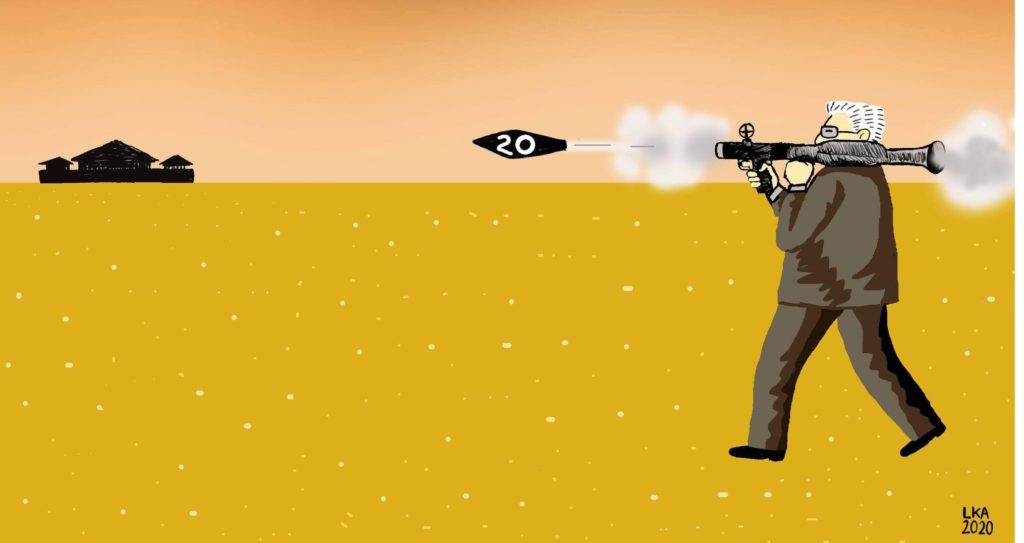Photo courtesy of Vikalpa
The debate on the proposed 20th Amendment to Sri Lanka’s 1978 Constitution is gathering momentum. The proposal which has been published in the Government Gazette is indeed a constitutional bombshell, literally. Its provisions are very destructive in their objectives as well as consequences. Perhaps, the management gurus and media moguls who advise President Gotabaya Rajapaksa may have successfully converted him to the somewhat naïve and politically dangerous doctrine of “creative destruction.”
Objectives
Even a hurried reading of the draft 20th Amendment tells the reader that its framers are motivated by the following two immediate political objectives:
- Creation of a new office of Executive Presidency and granting to the holder to that office unfettered and unchecked powers over the Cabinet, the legislature, the judiciary, the political system and society. The office of the President will once again be, as it was in 1978 and 2009, the central institution of state power which will stand above, and superior to, everything, and everybody, else in our society and polity.
- Assigning and securing to one ruling family the monopoly of political power in Sri Lanka.
Consequences
There are many negative consequences of the proposed 20th Amendment if it is passed in to law by Sri Lanka’s parliament. Some are short-term and others are both medium and long-term. It has the most destructive potential to create conditions for:
- Bringing an effective end to Sri Lanka’s much venerated parliamentary democracy and liberal democratic traditions and institutions.
- Creating a political system in Sri Lanka similar to the one we have had under the pre-1931 colonial state, thereby ignoring and erasing all the achievements and advances the Sri Lankan people have made in term of political progress since 1931.
- Making it difficult, if not impossible, to dislodge the incumbent ruling family, or whomsoever who occupies the office of President, from power by peaceful and electoral means.
- Depriving the people of Sri Lanka their sovereign right to change governments and remove rulers who violate their trust by peaceful means available within the framework of open, competitive, multi-party and electoral democracy.
- Granting constitutional sanctity to the arbitrary exercise of political power by the Executive, with only very restricted, if not non-existent. opportunities for society to exercise any control within the framework of Rule of Law which has so far been the cornerstone of Sri Lanka’s constitutionalism.
- Eventually stablishing a one-party state in Sri Lanka in line with the much dreaded South-East Asian developmentalist state model.
- Making liberty and freedoms of citizens vulnerable to arbitrary executive action in a situation in which new law reforms would seek to severely restrict (a) freedom of thought (b) freedom of expression (c) freedom of association and (d) right to dissent.
- Facilitating a swift transition from a weak democracy to an autocratic and tyrannical system of government.
With those consequences, Sri Lankan citizens will have to watch a rather tragic situation in which: (a) Parliamentary democracy is used to ensure its own negation, that is, ending parliamentary democracy itself, (b) One hundred and fifty or so Members of Parliament would be asked to sign their symbolic death warrant collectively by voting for the new constitutional amendment as envisaged by the proposed draft.
That is why the proposed 20th Amendment is politically and constitutionally so destructive. It will destroy the most precious political legacy of Sri Lanka’s modernity and progress and create in its place a post-democratic leviathan.
That is why the proposed 20th Amendment should be critiqued, opposed and resisted. That is also why President Gotabaya Rajapaksa should be asked by all his critics to exercise some degree of political sanity and prudence in his capacity as Sri Lanka’s ruler.
